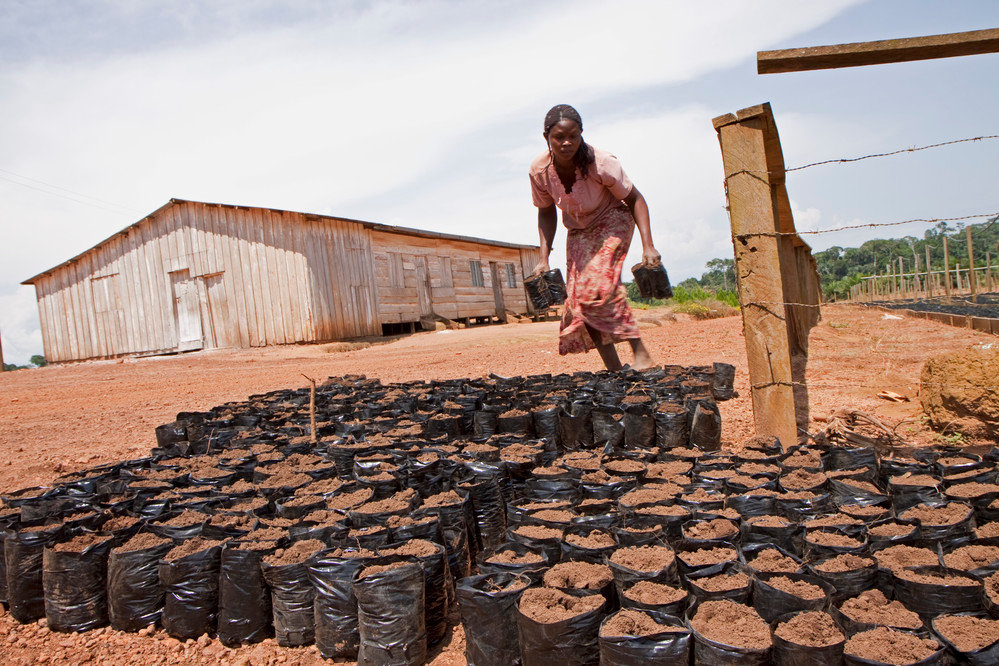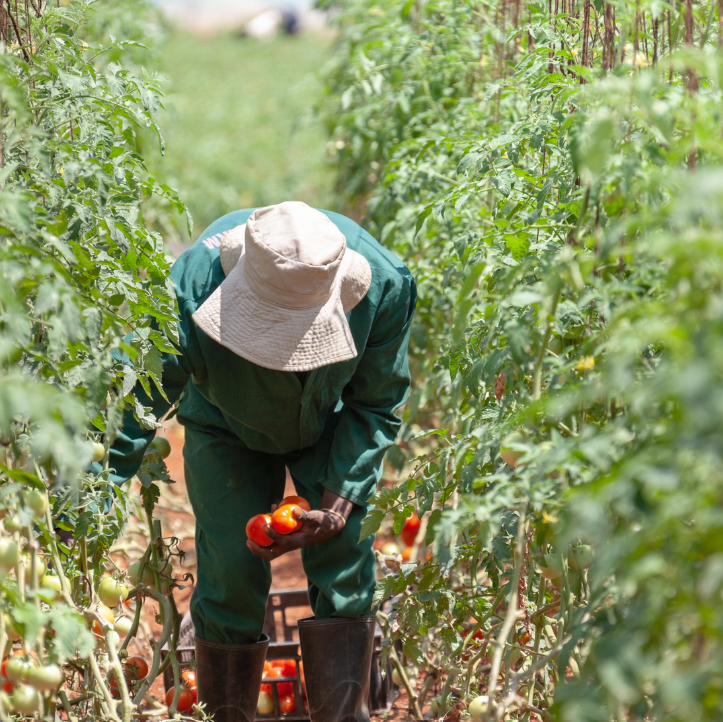
Photo: ©IFAD/Susan Beccio
This article was originally published by the International Fund for Agricultural Development.
In 2017, IFAD took its first plunge into the private sector investment space by launching the Uganda Yield Fund in partnership with the European Union.
The Yield Fund is an innovative social impact investment fund targeting the missing middle in the investment space – agricultural small and medium sized enterprises (SMEs) and producer groups in Uganda. It offers patient, risk capital products, such as equity, quasi-equity and debt funding. The Fund invests in companies that offer social impact with financial returns. A Business Development facility (BDS) improves their operational processes and addresses environmental and social impact and governance.
Compared to other IFAD investment instruments, providing finance and BDS support through an agribusiness investment fund has its challenges. The financial sector in Uganda remains relatively underdeveloped. The Fund was established as a Ugandan company partly to support financial sector development. Most similar funds are registered in countries like Mauritius, which brings clear advantages to the investors in terms of smooth transfer of funds, taxation and the resolution of potential disputes.
It has been close to two years since the implementation of the fund has started. Where are we today?
Following a successful close of EUR 12 million from the EU, through IFAD and National Social Security Fund of Uganda (NSSF), the Fund has made five investments in agro-companies for a total of EUR 3.3 million in a mixture of Quasi Equity (Loans with an option to be transferred into shares) and Debt financing with revenue participation).
We are currently working on a second capitalization round of the Uganda Yield Fund. As of 1 March 2019, two investors have received approval from their investment committees to invest in the Fund. The additional EUR 8 million will bring the Fund to a final close of EUR 20 million.
What are the major lessons from the first 18 months?
Lack of adequate capital for Agri-SMEs
The Yield Fund defines SMEs as companies with a turnover of less than US$5 million, having less than 150 employees and needing capital from US$250,000 to US$2 million. Our experience has confirmed the findings of the initial market study done by the European Commission that many Agri-SMEs in Uganda are constrained by a lack of adequate capital to fuel their growth. Financial institutions' terms are either too expensive, require a lot of collateral or have repayment schedules not in line with the company's business plan. It is essential to the business ecosystem that small agri-businesses access this capital in order to grow, creating demand for smallholder farmers produces, which will in turn provide more opportunities in their communities and drive rural transformation.
Risk appetite of Impact Investors
Many potential investors found the Yield Fund to be too small and too risky – being a single country, single sector fund. The expectation had been that investors would accept those risks in the interests of broader economic and social development. Unfortunately, the fundraising process taught us that many new entrants in the field, especially those with more 'commercial' capital, felt that an agriculture focused fund in Uganda does not match with their risk criteria or return expectations, even with a first loss protection. These expectations trickle down to fund managers who put stringent terms on SMEs to ensure they are able to meet investor return prospects.
People on the ground is a major advantage
Having an Uganda-based fund manager is a major advantage for the Yield Fund in different ways. First, having ears to the ground and informal networks in the sectors allows them to identify risks with investments that would have been extremely difficult otherwise. Their proximity to the SMEs allows them to build a closer partnership with the promoters who get to benefit from continuous capacity support from the fund manager.
Technical Assistance Facility is key
Agricultural technical assistance plays an important role in mitigating risk and boosting confidence for financial institutions involved in smallholder financing. It ensures that other constraints hindering the growth of the SMEs are addressed to create the right enabling environment. Technical assistance linked to investment vehicles are ideal, providing more flexibility for the companies and support pipeline development effort for the funds. For the Yield Fund, this cost-sharing facility is helping companies tackle ESG gaps, help them build or extend their smallholder farmer networks, obtain important certifications and improve their operational efficiencies.
Coordination between financiers is necessary for success
In the past year, we have found ourselves at the negotiation table with an SME who has been offered quasi-grant support by different donor supported institutions. As we move forward, it is important for alignment of different type of financing (grant, concessional loans, impact capital and commercial capital) and for financiers to take responsibility and work together in a manner not to distort reasonably well functioning markets. Partnerships and platforms like the Smallholder and Agri-SME Finance and Investment Network (SAFIN) are leading the way to bring coordination between stakeholders.
Environmental Social and Governance (ESG) compliance is a journey
SMEs are more often non-compliant with global ESG standards. These companies are very small and have more pressing issues, such as paying the farmers they source from or paying rent rather than worrying about their environmental footprint. Yield Fund has taken the approach of continuous improvement with the SMEs and taking them through a journey in improving these areas through an ESG action plan. The technical assistance facility has also been key in subsidizing some of those major costs.
For any questions, please contact Dagmawi at [email protected]

